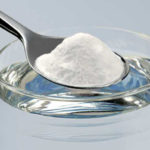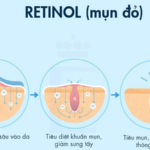Serum is an essential product in a comprehensive anti-aging beauty routine. It not only cares for your skin but also protects it from the harmful effects of sunlight throughout the day, such as applying vitamin C serum in the morning.
There are three types of serums that can help achieve youthful and radiant skin, in addition to the three popular types mentioned above. Here are the essential serums that you should regularly supplement.
Vitamin C, Hyaluronic Acid, and Retinol
Vitamin C reduces wrinkles and enhances the brightness of your skin. In addition, hyaluronic acid is extremely effective at providing certain levels of moisture to the skin at night.
Retinol brightens the skin, improves its tone and texture, and also accelerates the process of shedding dead skin cells, resulting in a more even skin tone. This ingredient helps rejuvenate the skin and stimulate collagen. Retinol in the form of serum or cream is perhaps included in every dermatologist’s skincare regimen because long-term use will reduce acne.
Retinol is an excellent choice to incorporate into your daily or weekly skincare routine as it can significantly enhance collagen production.

The products you use should provide sun protection from the harmful effects of ultraviolet rays. The nutrients have building blocks to synthesize collagen, helping to reduce wrinkles and provide moisture to restore the skin’s protective barrier.
Peptides
Peptides, amino acids are essential building blocks for skin proteins such as collagen and elasticity, produced by your body. This ingredient brings youthful, firm, and resilient skin. Peptides are amino acids that are building blocks capable of synthesizing collagen.
Peptides in serums or creams can penetrate the skin’s protective barrier, while collagen itself is too bulky. So, use peptide-based serums instead of collagen creams.
Glycolic Acid
Stimulating its production is necessary for anti-aging skin care, and this can be done with the help of glycolic acid.

Glycolic Acid, a collagen-enhancing skincare ingredient, has many beneficial effects on your skin, from reducing wrinkles and fine lines to enhancing tone and texture.
In addition, glycolic acid is an anti-aging ingredient with brightening properties, similar to retinol.
Experts advise incorporating different methods to effectively combat aging skin.
How to Effectively Treat Fishbone Issues at Home
Everyone loves feasting on the deliciousness of fish during the holidays. But, unfortunately, choking on fish bones is an unavoidable issue that may lead to devastating consequences if left unattended for a prolonged period. Let’s see how Dien May Xanh can help us out when fish bones get stuck in our throat.



































